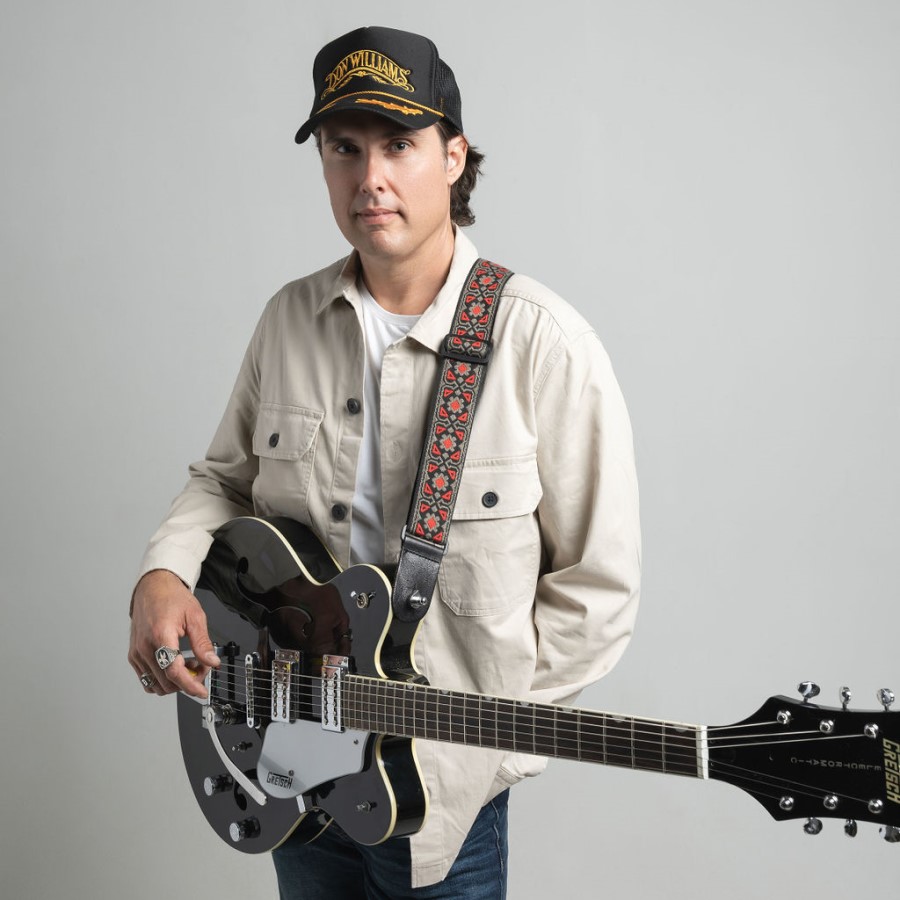Don Pedigo is one of Nashville’s finest singer-songwriters, whose old-soul rock and roll vibe and thoughtful lyricism takes you on an introspective adventure, leaving you not only wanting to know more about his music but also about yourself.

Pedigo describes his songwriting as, “Real life. Everything is directly or indirectly a personal experience. I may embellish it, but everything is connected to me.” Upon listening, your ear may beg you to remember some iconic musicians such as Graham Parsons or Tom Petty, but in Pedigo’s uniquely individual style that can’t be replicated, his songwriting delivers something modern and refreshing to the listener.
Don grew up in the Midwest in a rural farmhouse with walls that echoed the sounds of his Mother playing piano and his Father’s turntable spinning a vinyl collection of Country and Folk albums which were the building blocks of his deep love for music as a child. By the age of 13 Don was playing bass in a local rock band and soon after, he received his first Peavy electric guitar. Since then, he has never had a guitar beyond arms reach.
After his move to Nashville, Lady-Luck brought Don to Larry Crane, former guitarist for fellow Heartlander, John Mellencamp, and the pair cut a demo together. That demo found its way into the hands of the legendary, Earl Bud Lee (“Friends in Low Places”), and the two began a rich journey with Lee in the role of mentor, publisher and producer. The year 2006 saw the release of his first production record, ‘What Was I Running From’ (featuring Buddy Miller on guitar), and the single, ‘Mama’s Wedding Gown’ (produced by Larry Crane), was released the following year.
Pedigo’s last album, ‘The Cross Eyed Sessions’, a collection of mastered demos released in 2014, stayed in the Roots Rock Top 40 Charts for over 2 years. With the success of that grassroots campaign and the beginnings of the release of his large catalog, he anxiously awaits the road he was made for.
Name a perfect song and tell us why you feel that way.
The perfect song to me is imperfect. In one way the greatest songs to me, standards really, can be picked up by an artist other than the writer and be reinterpreted, any time period, and in any way. In that same way but from a different view, an artist may always be evolving and growing with a song. Arrangements and performances may change from recording to recording. I know Bob Dylan is this way. He was a very early influence on me. His stamp of approval on how songs may never truly be finished is all I’ve ever needed for backup verification. The other way when I think of a perfect song, is that I prefer a great take rather than an over thought over production. I don’t think every current artist is this way but more than a few are. I prefer the singular nuances that singers can have too. Those things get “fixed,” too often mostly because of an artist’s insecurity to reveal what the listener would interpret as special. A lesson taught to me over and over in the studio. All producers have left my voice alone and not let me sing songs over and over when I have gotten too far in my own head.
Do you have any songwriting tips you can share?
Read. A lot. Take time without devices. Write it all down, don’t give yourself time to judge, edit later. Say what you know and when you dream, be a part of the story even if indirectly. Try not to judge from a distance. Get used to being so close and something just doesn’t cut it. Don’t worry about critics but, note what works and what doesn’t. Don’t be lazy, try again. Practice emotional detachment. The right ones will remain.
Do you play covers at your shows? Why or why not?
Yes. Best to keep things familiar and then there’s more chance of remembering us in the sea of everything. Also, people love a cover. When you only play a couple it’s still obvious you’re not a cover band. That to me makes a cover more special. I’ve gotten over myself in ways like that lately. Producers have always encouraged me to explore other artist’s songs. We started doing that on this latest release.
What is your vision for a more just music industry?
Clarity in the levels of talent and unification from artists of a certain level to either launch their own platform and pay separately, or demand the labels fix the BS. I think the moneymakers in this business need to take a hard look at what artists are getting the most attention and why. Popular music used to convey change. A lot of mainstream artists shy away from conflict in order to keep their sponsorships. At the risk of sounding jealous I personally have no need for the industry’s payout. Don’t get me wrong, I’d certainly appreciate one of my songs to be deemed a “hit,” but that comes from the art and not the money. As much as it would seem easier to fall in the stream of neutrality my heart won’t let me do it. The next Lennon is out there. A good friend of mine used to write for Bobby Darin and told me Darin prophesied the industry would be taken over by suits and true art squashed. I agree with him and wish he were still alive. I believe, like all social movements today, that music will change for the better and if you ask me the time is now.
Where are some places you’ve found joy within the country/Americana world?
When we do Gram Parsons tribute shows we find a welcomed connection to that world. Folks seem more open to the introduction of our material when we come from that direction.
